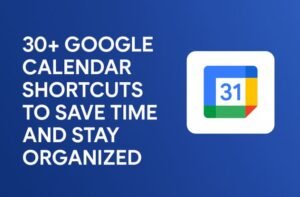Why Small Businesses Need No-Code Website Builders in 2025
In 2025, if your small business doesn’t have a website, it’s almost invisible. But not every entrepreneur has the time or budget to hire a developer.
That’s where the best no-code website builder for small business in 2025 steps in offering a cost effective, beginner-friendly, and professional way to get online.
Whether you’re a bakery owner, freelance consultant, fitness coach, or local crafts seller, you can now create a beautiful, functional website without knowing how to code. And with today’s no-code tools, the results are faster, smarter, and more powerful than ever.
In this article, we’ve researched, tested, and compared the top no-code platforms built for small businesses like yours.
What Makes a No-Code Builder Ideal for Small Businesses?
Here’s what you should prioritize when choosing a website builder for your business:
| Feature | Why It’s Important for Small Business |
|---|---|
| Ease of Use | You don’t want a steep learning curve when running a business |
| Built-in E-commerce | Helps you sell online without extra tools |
| Contact Forms/CRM | Capture leads and stay connected with customers |
| Mobile Responsiveness | Most traffic now comes from mobile devices |
| SEO Optimization | Helps local customers find you on Google |
| Affordable Pricing | Small business budgets are tight—every dollar counts |
| Templates for SMBs | Saves time and fits your industry’s needs |
| Customer Support | Quick help when things go wrong |
Top 5 Best No-Code Website Builders for Small Businesses in 2025
Let’s dive into the platforms that stand out in 2025 for reliability, features, and affordability.
1. Wix – Best All-in-One Solution for Small Businesses
Why Wix?
Wix continues to dominate as one of the easiest and most versatile no-code builders. From appointment bookings to e-commerce, Wix offers hundreds of industry specific templates tailored for small business use.
Key Features:
- Drag-and-drop website editor
- Industry-specific templates (restaurants, salons, freelancers, etc.)
- Built-in CRM, bookings, email marketing
- Wix AI Assistant for site creation
Personal Experience: I helped a friend launch a hair salon site on Wix in just 2 days. Online bookings and Google Map integration were seamless—and no developer was needed.
Pros:
Intuitive for beginners
Great range of business tools
Free plan available
Cons:
Can become costly with add-ons
Limited design control vs. Webflow
2. Squarespace – Best for Branding and Visual Appeal
Why Squarespace?
Known for its clean, modern templates, Squarespace is great for small businesses that value aesthetics—photographers, designers, and lifestyle brands thrive here.
Key Features:
- High-quality templates
- Integrated scheduling (Acuity)
- Social and email marketing tools
- E-commerce support
Pro Tip: If brand image matters to you (and it should!), Squarespace ensures your site looks polished and premium even if you’re on a budget.
Pros:
- Stunning design
- Strong built-in marketing tools
- Ideal for content creators
Cons:
Slightly fewer customization options
Not as feature-rich as Shopify for e-commerce
3. Shopify (Starter + No-Code Tools) – Best for Small E-Commerce Businesses
Why Shopify?
If your business revolves around selling physical or digital products, Shopify is the gold standard—even for no-code users. The new Shopify Starter + Shopify Magic tools let you build landing pages, manage inventory, and integrate payments with ease.
Key Features:
- Best-in-class e-commerce tools
- Inventory and order tracking
- Abandoned cart recovery
- Social selling (TikTok, Instagram, Facebook)
Real Example: A local candle business I consulted used Shopify Starter to go from zero to 100 monthly orders within 3 months, all through Instagram integration.
Pros:
- Tailored for sales
- App-rich ecosystem
- Great for scaling
Cons:
- Monthly costs can add up
- Limited design freedom unless using third-party themes
4. Zyro (by Hostinger) – Best Budget-Friendly Option
Why Zyro?
Zyro is a lightweight but powerful website builder perfect for small businesses that need a simple online presence without burning a hole in their pocket.
Key Features:
- Fast and easy setup
- AI content and logo generator
- Grid-based editor for clean layout
- Free SSL, hosting, and domain options
Use Case: A personal trainer built a landing page with Zyro to book local clients, integrated Calendly, and saw 3x growth in weekly signups.
Pros:
- Budget pricing
- Perfect for landing pages
- Fast-loading sites
Cons:
Limited design flexibility
Fewer advanced integrations
5. GoDaddy Website Builder – Best for Local and Brick-and-Mortar Businesses
Why GoDaddy Builder?
Ideal for local businesses and service providers, GoDaddy’s website builder is fast, easy, and integrates with business listings, bookings, and email marketing.
Key Features:
- Quick-start wizard
- Appointment scheduling
- Google My Business sync
- Email & social tools included
Pro Tip: Great for people who already bought a domain from GoDaddy. You can set up a site, connect email, and start marketing in one place.
Pros:
- Fast setup
- Local SEO optimization
- Strong support
Cons:
- Less customizable
- Limited template design choices
Comparison Table: No-Code Website Builders for Small Businesses
| Platform | Best For | E-commerce | Templates | AI Tools | Pricing |
|---|---|---|---|---|---|
| Wix | All-purpose businesses | ✅ | ⭐⭐⭐⭐ | ✅ | Free–$$ |
| Squarespace | Creatives, service brands | ✅ | ⭐⭐⭐⭐⭐ | ⚠️ | $$ |
| Shopify | Product-based businesses | ✅✅ | ⭐⭐⭐ | ✅ | $$–$$$ |
| Zyro | Budget & landing pages | ✅ | ⭐⭐ | ✅ | $–$$ |
| GoDaddy | Local businesses | ✅ | ⭐⭐ | ✅ | $$ |
What Experts and Small Business Owners Say
“Wix saved me thousands of dollars I would’ve spent hiring a developer. Now I run my yoga business online entirely from it.”
— Nina Choudhury, Small Business Owner
“Shopify made it so easy to turn my handmade soap hobby into a legit side hustle.”
— Bryan Lee, Etsy Seller turned Ecompreneur
“Zyro was perfect when I needed a one-pager for my consulting gig. It took me one evening to set up.”
— Rayhan Islam, Freelance Consultant
How to Choose the Right Platform (Step-by-Step)
- Identify Your Business Type
→ Product-based? Choose Shopify or Wix
→ Service-based? Choose Squarespace or GoDaddy - Set a Budget
→ Tight budget? Try Zyro
→ Need full features? Go with Wix or Shopify - Design Needs
→ Want total control? Webflow (advanced users only)
→ Prefer templates? Squarespace is your friend - Scale Plans
→ Need future e-commerce? Start with Wix
→ Expect high traffic? Shopify or GoDaddy with hosting bundles
Bonus No-Code Tools for Small Business
- Calendly (appointment booking)
- MailerLite (email marketing)
- Notion + Super.so (build internal wikis or landing pages)
- Tally.so (no-code form builder)
- Canva + Brand Kit (design consistency across your site)
Conclusion: Your Business Deserves a Website No Code Required
In 2025, there’s no excuse not to have a professional website for your business. With the rise of no-code platforms, creating a high-quality site has become faster, cheaper, and more fun.
So, what’s the best no-code website builder for small business in 2025?
It depends on your business model, style, and growth goals—but one thing is certain: there’s a perfect tool for you.
Ready to go live with your dream business website?
Pick a builder from the list above and start your free trial today.
Have questions or success stories? Drop a comment—we’d love to feature your experience!
Subscribe to our newsletter for weekly tips on building and growing your online business without code.




